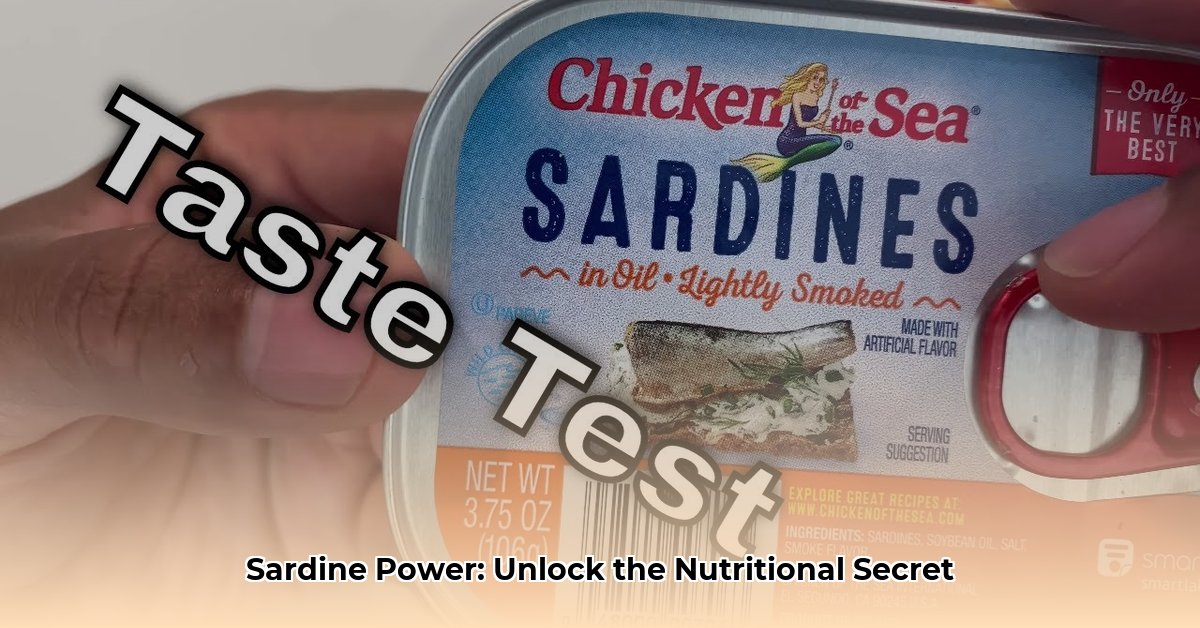Sardines, often overlooked, are nutritional powerhouses packed with essential nutrients. This guide delves into the health benefits of Chicken of the Sea sardines, comparing the “in oil” and “in water” varieties, addressing safety and sustainability concerns, and offering creative serving suggestions.
Decoding the Nutrition of Chicken of the Sea Sardines
Sardines offer a significant boost to your health, providing essential nutrients often lacking in modern diets, including omega-3 fatty acids, vitamin D, calcium, and protein. Let’s explore why these nutrients are vital and how Chicken of the Sea sardines deliver.
Comparing “In Oil” vs. “In Water” Sardines
Your first decision is often between oil-packed and water-packed sardines. This table highlights key nutritional differences per serving (data sourced directly from Chicken of the Sea product labels as of October 26, 2023, and may vary slightly depending on catch):
| Nutrient | In Water (74g can, drained) | In Olive Oil (69g serving) |
|---|---|---|
| Calories | 100 | 130 |
| Total Fat | 5g | 10g |
| Saturated Fat | 1g | 5g |
| Trans Fat | 0g | 0g |
| Cholesterol | 95mg | 85mg |
| Sodium | 240mg | 380mg |
| Potassium | 140mg | 126mg |
| Total Carbohydrate | 0g | 0g |
| Dietary Fiber | 0g | 1g |
| Sugars | 0g | 0g |
| Protein | 14g | 11g |
| Vitamin D | Not listed | 6mcg |
| Calcium | 200mg | 204mg |
| Iron | 1.1mg | 1mg |
The primary difference lies in fat and calorie content. Oil-packed sardines contain more fat, where beneficial omega-3s concentrate, contributing to a richer flavor. Water-packed sardines offer a leaner alternative while retaining valuable protein and other nutrients.
A Deep Dive into Sardine Nutrients
Let’s explore why these nutrients are so crucial:
- Omega-3 Fatty Acids: Renowned for anti-inflammatory properties, omega-3s may benefit heart health, brain function, joint pain, and potentially even mood and chronic disease risk. Current research suggests they play a vital role in overall well-being.
- Vitamin D: Crucial for calcium absorption and bone health, vitamin D may also support immunity and cell function. Sardines are a valuable source, especially given widespread vitamin D deficiency.
- Calcium: Essential for strong bones and teeth, calcium also contributes to muscle function, nerve transmission, and blood clotting, highlighting its multifaceted role.
- Protein: A fundamental building block for tissues, protein facilitates muscle repair and growth, promotes satiety, and plays a crucial role in various bodily functions.
Sustainability, Heavy Metals, and Brand Comparison
Chicken of the Sea participates in sustainable fishing practices (refer to their website for specific details). Regarding heavy metals, sardines are low on the food chain, accumulating less mercury than larger fish. Research indicates that for most people, the nutritional benefits probably outweigh potential mercury risks. However, ongoing studies continue to explore this complex issue, and recommendations may evolve. Consult your doctor for personalized advice, especially if you have specific health concerns or are pregnant.
Comparing Chicken of the Sea to other brands requires careful attention to serving sizes for accurate comparisons of omega-3s, vitamin D, and calcium.
FAQs: Addressing Common Sardine Queries
- Disliking the “fishy” taste? Lemon juice, hot sauce, or fresh herbs can enhance the flavor. Incorporating sardines into recipes with complementary ingredients also helps.
- Storage: Unopened cans are pantry-stable. Refrigerate opened sardines in an airtight container, consuming them within a few days.
- Serving suggestions: Sardines are versatile. Enjoy them on crackers, in salads, mashed on toast with avocado, incorporated into pasta dishes, or as a flavorful sardine salad with herbs and spices.
Embracing the Power of Sardines
Chicken of the Sea sardines offer a convenient, affordable, and incredibly healthy way to boost your nutrient intake. Whether you choose oil-packed or water-packed, you’re making a nutritious choice. Try incorporating these tiny powerhouses into your diet and reap the rewards!
This information is for general knowledge and should not substitute professional medical advice. Nutritional information can vary, always check product labels for the most accurate data. Current scientific understanding continues to evolve, so staying updated with reputable sources is essential.
- Best Mindfulness Books for Anxiety, Sleep, and Daily Peace - January 29, 2026
- Books On Mindfulness For A Happier, More Present Life - January 28, 2026
- Essential Meditation Books for Beginners and Experienced Practitioners - January 27, 2026
















